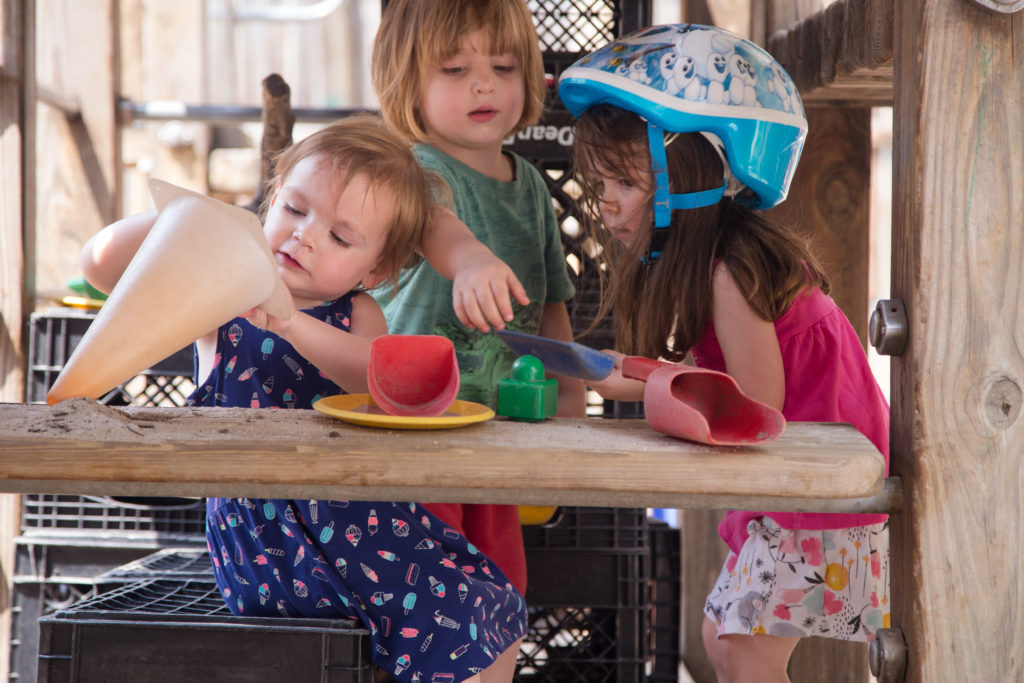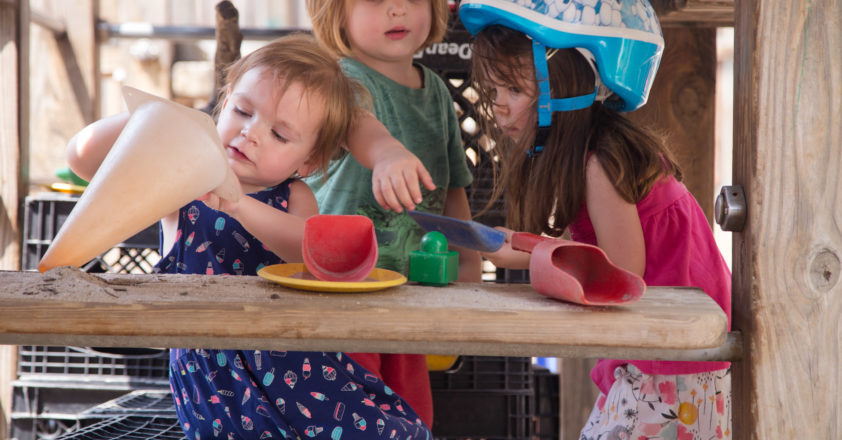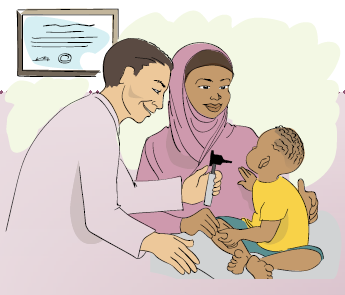I Did Nothing Today: 5 Tips to Get More Details from Children
DYK? Play helps children develop social and emotional development skills. According to the Harvard Graduate School of Education, play spaces can greatly enrich learning when they introduce opportunities for risk-taking and invite uncertainty in play.
“What did you do today?”
“Nothing. I just played.”
How many times has this conversation happened between a child and an adult?
To an adult, it may seem like the child is saying they did nothing all day. However, play is essential to a child’s development. Play is a child’s work and how they learn necessary life skills.
High-quality early care and education providers plan environments that may feel like “just” play to children, but these environments teach them important skills. When children say they played, they are really saying they learned.
Children can be encouraged to talk more about their day with the help of guided questions and information provided to parents and families.
Here are seven questions to ask your children instead of, “What did you do today?”
- Whom did you play with today?
- What was your favorite part of the day?
- What did you do in the (block area/library/science area) today?
- What made you laugh today? Did anything happen to make you sad?
- Did something silly happen today?
- Did you (build/make/draw/write) something today?
- I saw that you have new blocks. What do you think about those?
 Six things educators can do to get more details from children:
Six things educators can do to get more details from children:
- Share lesson plans with families. When they know what is happening in the program, they can encourage conversations and extend learning at home.
- Display daily happenings on a family bulletin board.
- Invite families to your program.
- Share photographs with families via e-mail or social media.
- Using a laminated piece of construction paper and a dry-erase marker, write a brief sentence or two about what happened in the program that day. When families pick up their children at the end of the day, they have something to discuss with their little ones on the way home.
- Before going home, attach a sticker or yarn necklace to each child that says, “Ask me about…”
Five things families can do to get more details from children:
- Ask focused and specific questions.
- Children live in the “here and now,” so ask questions about specific times of the day (like “playground time” or “storytime”) to help refresh their memory.
- Ask questions that require more than a “yes” or “no” response.
- Ask children about their opinions.
The Nothing Poem
When children come home
At the end of the day,
There’s a question they’re asked
As they scurry to play.
“Tell me, what did you do in school today?”
“Nothing. I did nothing today!”
Perhaps nothing means that I played with blocks.
Tied my own shoes or found beautiful rocks.
Maybe the monarchs hatched today.
Or maybe I found a new friend to play.
Maybe today was the very first time.
My scissors followed a very straight line.
Perhaps I learned a new song,
And sang all the words,
Or I touched a feather from the strangest of birds.
When you’re in preschool and your heart has wings,
“Nothing” can mean some wonderful things!
~Author Unknown




